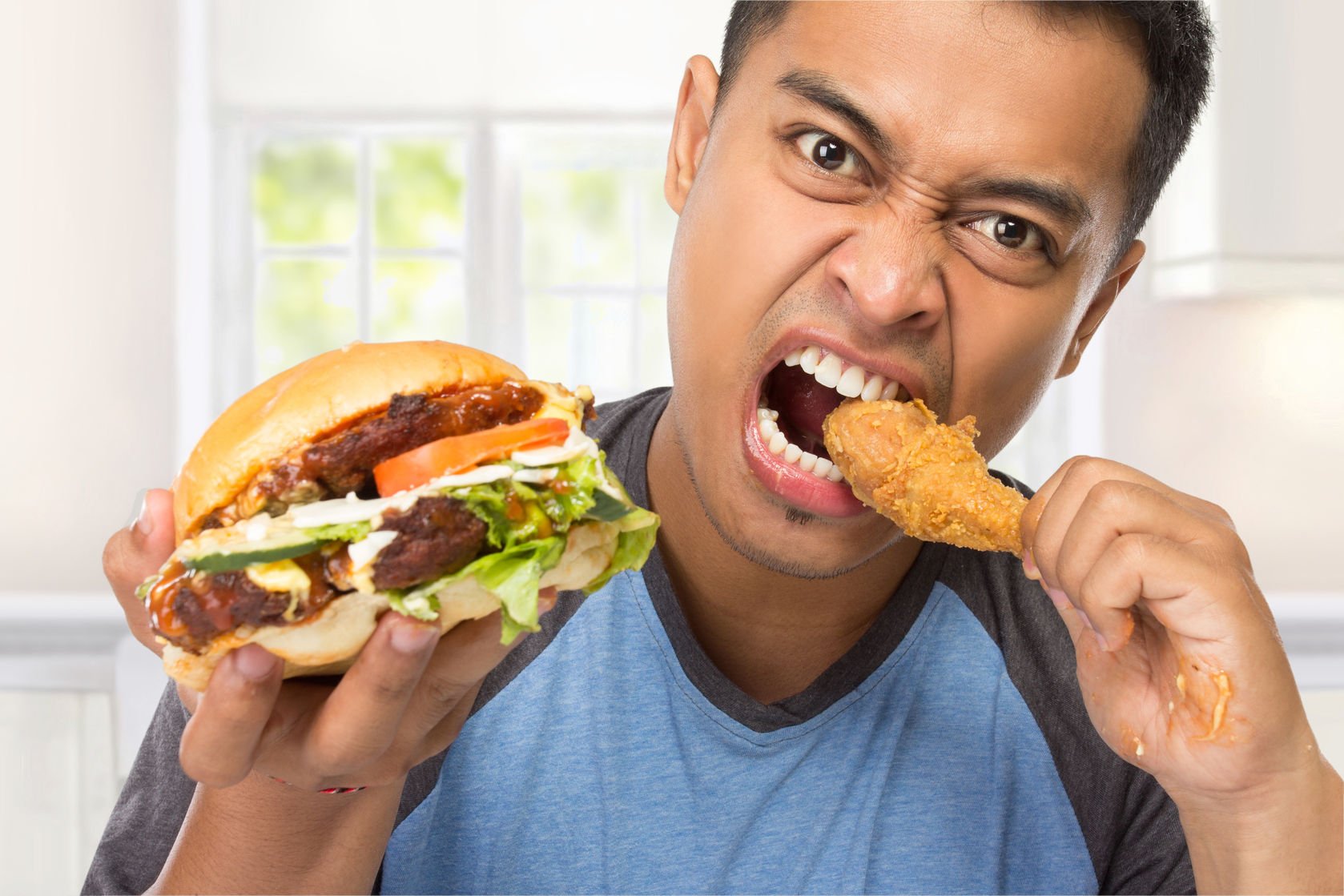Eating Pets Meme - Unpacking Digital Misinformation
There's been a lot of chatter lately, particularly in online spaces, about some rather unusual claims. It feels like, you know, sometimes things just get twisted, and before you realize it, a strange idea starts circulating, gaining a surprising amount of attention. One such idea, quite frankly, involves the notion of people eating household companions, a concept that's sparked a fair bit of confusion and, in some respects, even alarm among many folks who spend time on social media platforms.
This whole discussion about the "eating pets meme" isn't just about a funny picture or a catchy phrase. It points to something much bigger about how information, or rather, misinformation, spreads these days. It shows us, too it's almost, how easily a simple thought can get picked up, shared, and then, without much thought, become something that people genuinely believe, even when there's no real proof to back it up. We see how quickly a bit of talk can become a widely shared idea, even if it's completely made up, and that's a bit of a concern for sure.
The journey of these sorts of claims, from a single post to a widespread discussion, really highlights the powerful influence of online communities and the individuals who shape those conversations. It's a pretty interesting thing to observe, how a person with a large following can, you know, really get an idea out there, even if it's a bit far-fetched. This piece is going to take a closer look at this particular online phenomenon, what it means, and how we might think about the sorts of messages we encounter online, especially when they seem, well, a little out of the ordinary, basically.
Table of Contents
- Elon Musk - A Figure in Digital Conversations
- Personal Information
- What's the Deal with the Eating Pets Meme?
- The Alf Connection to the Eating Pets Meme
- How Do These Ideas Spread - The Eating Pets Meme's Reach?
- Why Do People Share Such Claims About Eating Pets?
- Considering the Impact of the Eating Pets Meme
- Beyond the Meme - Focusing on Wholesome Eating
Elon Musk - A Figure in Digital Conversations
When we talk about ideas spreading on social media, it's pretty hard not to think about some of the more prominent voices who really shape what gets talked about. One such person, who really has a knack for getting people to notice what he says, is Elon Musk. He's someone who, in some respects, has a very large presence on platforms like X, which used to be called Twitter, and his posts often grab a lot of attention, sometimes for things that are, you know, a bit unexpected. His influence means that when he talks about something, even if it's just sharing someone else's thought, it can reach a huge number of people in a very short amount of time, actually.
He's known for being a person who builds big companies and thinks about the future, but he's also become quite famous for his activity on social media. His posts can be about anything from space travel to, well, the sorts of claims that lead to discussions about things like the "eating pets meme." It's clear that his words carry a lot of weight for his followers, and that's something worth thinking about when we look at how certain stories or ideas gain traction online. He tends to be someone who isn't afraid to speak his mind, and that certainly contributes to his wide reach, basically.
Personal Information
| Full Name | Elon Reeve Musk |
| Occupation | Entrepreneur, Investor, Engineer |
| Known For | Founding SpaceX, Co-founding Tesla, Neuralink, The Boring Company, and acquiring X (formerly Twitter) |
| Social Media Presence | Very active on X, with millions of followers |
What's the Deal with the Eating Pets Meme?
So, what exactly is this "eating pets meme" that has been making the rounds? It's a rather peculiar idea that has, quite frankly, caused a bit of a stir. The core of it, from what we can tell, comes from claims that suggest certain groups of people, specifically immigrants, are engaging in the practice of consuming household animal companions. This notion has been shared and talked about in various online spaces, and it's something that, you know, really makes you pause and wonder where such an idea could even come from. It feels like a story that's designed to shock, and in some ways, it certainly does.
The idea gained a lot of steam when prominent figures, like Elon Musk, shared or posted about it on platforms like X. These posts sometimes mentioned specific places, like Springfield, and linked the idea to immigrants. It's a situation where, you know, a claim that has no basis in reality gets a huge platform, and then it spreads very quickly. The reason it's called a "meme" is because it gets repeated and changed a little bit as it goes from person to person online, much like a catchy tune or a funny picture that everyone starts sharing. But in this case, the content is, well, pretty serious and quite harmful, actually.
It's important to remember that these sorts of claims are, in fact, not true. The idea that immigrants are eating people's pets is a fabrication, a story that has been made up and shared without any real proof. This kind of misinformation can be quite damaging, creating false impressions about groups of people and causing unnecessary fear or anger. It's a classic example of how, you know, something completely untrue can gain a lot of attention if it's presented in a certain way, especially when it touches on sensitive topics. This whole situation really highlights the need for us to be a bit careful about what we believe online, basically.
The Alf Connection to the Eating Pets Meme
Interestingly enough, the idea of eating pets isn't entirely new to the world of popular culture, though it's usually presented in a very different, often humorous, light. There's an older reference that some people might remember, connected to a television show from the 1980s called "Alf." This show featured an alien character named Alf who, you know, lived with a human family, the Tanners. A running joke in the series was Alf's rather odd and persistent interest in trying to eat the family's cat. It was always played for laughs, a silly part of the character's personality that was never meant to be taken seriously, obviously.
So, when we see the "eating pets meme" pop up today, some people, particularly younger users on platforms like TikTok, are actually making a connection to this old "Alf" show. It's almost as if they're, you know, taking this really serious and false claim and trying to turn it into something a bit lighter, a way to mock the original, harmful message. They might be dancing to a new popular song while referencing the "Alf" character's quirky habit, which is a way of showing that they see the claim as ridiculous and not to be believed. It's a pretty interesting way that online communities respond to and, in a way, try to deal with misinformation, basically.
This use of the Alf character in the context of the "eating pets meme" shows how internet culture can sometimes take a very serious and false idea and, you know, transform it into something that's either a joke or a form of protest against the original, untrue statement. It highlights the power of shared cultural references and how they can be used to comment on current events, even when those events are, you know, quite concerning. It's a way for people to express their disbelief and to, in some respects, push back against the spread of harmful ideas, which is, you know, pretty cool in its own way, really.
How Do These Ideas Spread - The Eating Pets Meme's Reach?
Thinking about how quickly ideas, especially those that aren't true, can spread online is a pretty important part of this whole conversation. The "eating pets meme" is a good example of how platforms like X and TikTok become a kind of megaphone for all sorts of messages. When someone with a huge number of followers, like Elon Musk, shares something, it gets seen by millions almost instantly. This means that even a claim that seems, you know, completely made up can suddenly become a topic of widespread discussion, and that's a bit of a challenge for sure.
On platforms where younger people spend a lot of their time, like TikTok, the way information moves is a little different. It's often through short videos, catchy sounds, and challenges. So, when a claim about something like the "eating pets meme" shows up, the young people on TikTok might not be taking it seriously at all. Instead, they're, you know, often using it as a starting point for their own creative content, sometimes to make fun of the original claim or to show how silly it is. This creates a kind of echo chamber where the idea gets repeated, but the meaning behind it can change, which is pretty fascinating, actually.
The speed and reach of these platforms mean that a false story can become a widely known "meme" before anyone has a chance to really check the facts. It's a situation where, you know, the impulse to share something quickly often outweighs the impulse to think critically about it. This is why it's so important for us, as people who spend time online, to develop a bit of a healthy skepticism about what we see and hear. We need to remember that not everything that gets a lot of likes or shares is, in fact, true, and that's a pretty big lesson for all of us, basically.
Why Do People Share Such Claims About Eating Pets?
It's natural to wonder why someone would share a claim as unusual and, frankly, as untrue as the "eating pets meme." There are, you know, a few reasons why people might do this, and it's not always as simple as just wanting to cause trouble. Sometimes, people share things because they genuinely believe them, even if they haven't checked the facts. They might see a post from someone they trust, or someone with a big following, and just assume it's accurate, which is a pretty common human tendency, actually.
Other times, people might share these sorts of claims because they fit into a certain way of thinking they already have. If someone already has negative feelings about a particular group of people, a story that seems to confirm those feelings, even if it's false, might be, you know, more likely to be shared by them. It's a bit like looking for proof that you're right, even if that proof isn't real. This can create a kind of feedback loop where false ideas get reinforced, and that's a bit concerning, really.
And then there's the element of wanting to get attention or to be part of a big conversation. Sharing something shocking or controversial, even if it's not true, can sometimes get a lot of reactions and comments. For some people, that immediate feedback, you know, can be a pretty strong motivator. It's a way of feeling connected or relevant in the fast-paced world of online interactions. But, as we've seen with the "eating pets meme," this can have real and harmful consequences for the people who are the subject of these false stories, basically.
Considering the Impact of the Eating Pets Meme
While some might see the "eating pets meme" as just another strange internet story, the real impact of such claims can be quite serious. When false information about a group of people, like immigrants, spreads widely, it can, you know, create real harm. It can lead to prejudice, discrimination, and even real-world negative actions against those groups. It's not just about a funny picture or a silly idea; it shapes how people think about others, and that's a pretty big deal, actually.
The clear message that needs to be heard is that, you know, these claims are simply not true. Immigrants are not eating people's pets. This is a made-up story, and it's important to set the record straight for everyone. Spreading such falsehoods can cause unnecessary fear and anger in communities, and it can also distract from the real issues that people are facing. It's a situation where, you know, a bit of misinformation can really do a lot of damage to how people view one another, and that's something we should all be mindful of, really.
Thinking about the impact also means considering the wider effect on our ability to have meaningful conversations. When wild, untrue claims take center stage, it makes it harder to talk about important topics with a clear head. It creates a kind of noisy environment where facts get lost in the shuffle, and that's, you know, pretty unhelpful for everyone involved. So, pushing back against these sorts of memes isn't just about correcting a small error; it's about trying to keep our public discussions based on what's real and true, basically.
Beyond the Meme - Focusing on Wholesome Eating
Moving away from the unsettling topic of the "eating pets meme" and the spread of misinformation, it feels like a good time to shift our focus to something truly important and beneficial: how we nourish our bodies. Thinking about what we put into our systems, you know, is a very real and personal matter that affects our health every single day. It's a bit like how we choose what information to consume; making good choices here makes a big difference to our overall well-being, actually.
For instance, for people who are managing conditions like diabetes, eating well doesn't have to be complicated or restrictive. It simply means choosing the most wholesome foods, enjoying them in sensible amounts, and sticking to regular meal times. This approach helps the body manage blood sugar levels and, you know, keeps things running smoothly. It's about finding a balance that works for you, rather than feeling like you're missing out on anything, which is pretty liberating, really.
When we eat, how we eat also matters a great deal. Taking your time with meals, for example, can help you swallow less air, which is good for your digestive system. Making meal times relaxed occasions, free from stress or rushing, can also make a big difference. Eating when you're feeling worried or, you know, trying to do too many things at once, can actually increase the amount of air you take in, which might lead to discomfort. So, slowing down and enjoying your food is, in some respects, a very simple but powerful way to care for yourself, basically.
Thinking about the kinds of foods that are especially good for us, those that provide plenty of fiber, vitamins, and minerals are always a win. Foods that are rich in plant chemicals, often called phytonutrients, are an added bonus for our health. These sorts of foods help our bodies function at their best. While it might be tempting to cut out entire food groups in an effort to be healthier, restricting your diet too much may not always be the best path. It's more about adding in good things and finding a balanced approach, which is, you know, a pretty healthy way to think about food, really.
The goal is to make your eating habits better over time and to help you reach a healthy body weight that feels good for you. This means replacing habits that aren't serving you well with ones that are. It's about finding healthy ways to cope with stress or emotions that might otherwise lead to unhealthy eating patterns. For example, the DASH diet, which stands for Dietary Approaches to Stop Hypertension, is a well-known way of eating that focuses on fruits, vegetables, whole grains, and lean protein, and it can be very helpful for heart health and overall well-being. This way of eating can also, you know, help the digestive tract heal from a flare-up, which is pretty amazing, actually.
Ultimately, whether we're talking about the information we take in or the food we consume, it's all about making choices that support our health and well-being. Just as we want to avoid misleading "eating pets meme" stories, we also want to avoid eating habits that might, you know, lead to problems down the road. It's about being mindful and making thoughtful decisions for ourselves, which is, in some respects, the most important thing we can do for our bodies and minds, basically.

Eat your greens: action needed | AJP

Gente Comiendo Comida Sana

Nutrition for kids: Guidelines for a healthy diet